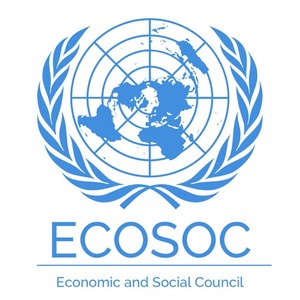All for one, One for all
 As the biggest oil exporter with the largest natural gas reserves in Africa and accounting for about 49% of West Africa’s population; Nigeria is the most populous country in black Africa, with an approximate 158 million people. Interestingly, Nigeria’s economy witnessed an all-time high growth rate of 7.6% between 2003 and 2010. But unfortunately, over 63% of its population still wallows in abject poverty, living below $1 per day (World Bank). The million dollar question is: Why has poverty eradication attempts failed in Nigeria, despite the vast human and natural resources?
As the biggest oil exporter with the largest natural gas reserves in Africa and accounting for about 49% of West Africa’s population; Nigeria is the most populous country in black Africa, with an approximate 158 million people. Interestingly, Nigeria’s economy witnessed an all-time high growth rate of 7.6% between 2003 and 2010. But unfortunately, over 63% of its population still wallows in abject poverty, living below $1 per day (World Bank). The million dollar question is: Why has poverty eradication attempts failed in Nigeria, despite the vast human and natural resources?
Despite several attempts by successive governments at mitigating the problem, little or no success has been recorded. Yet huge sums have been expended by governmental and non-governmental agencies in this direction. However, this cannot be unconnected to wanton corruption, income inequality, political instability, conflicts and ineffective public policies. In addition, poverty eradication drive, has suffered huge setbacks as a result of institutionalised hypocrisy in the guise of poverty alleviation and rural-poor economic empowerment interventions. Fraudulent non- governmental organisations (NGOs) and individuals have cashed in on the dire situation, in the process defraud both foreign and local donor agencies of millions of dollars at the expense of the majority poor. In a bit to ‘justify’ their so-called empowerment schemes, they churn out fictitious names of beneficiaries, figures, projects and non-existent locations. All in an effort to divert funds supposedly meant for the rural and urban poor’s economic empowerment. Suffice to mention however, that there are exceptions to the above assertion – but rare.
Going through the history of attempts by government to arrest the soaring rate of poverty in the country, one cannot but see the disconnection between the schemes on the one hand and solutions to poverty on the other, which unarguably lies in women’s active participation in the process. From the 1972 National Accelerated Food Production Programme and Nigerian Agricultural and Cooperative Bank, to the 1976: Operation Feed the Nation; then Green Revolution of 1979; Directorate of Food, Roads and Rural Infrastructure in 1986, then Family Support Programme and the Family Economic Advancement Programme of 1993 and recently National Poverty Alleviation Programme. Except for the Family Support Programme and Family Economic Advancement Programme that tried unsuccessfully to directly include women in the fight against poverty, none of these schemes placed women in an active role; hence, there lies the crux of the matter.
However, as stated earlier, the failure of these schemes is tied to corruption and political instability, stemming from lack of stringent monitoring of government expenditures, to diversion of funds meant for the schemes in exchange for political patronage and loyalty. While civil unrest and long ethnic and religious conflicts increases mortality rate and impoverishment, rampant income inequality among citizens worsens, resulting in increased rural poor index over and above urban poor. Hence, poverty is more evident among rural dwellers, whose main source of livelihood is agriculture. According to a UNDP report, agriculture employs close to 90% of the rural population and contributes about 45% of the country’s GDP – an imbalance clearly visible in society and a sector entirely abandoned by the government.
 Women in Africa and more particularly Nigeria are active participants in nation building, albeit being victims of bad government policies, crisis and instability. From the home front all the way to governance, women have been seen to be outstanding in all endeavours. The rural woman in Nigeria specifically, engages in all manner of hard labour to eke out a living for the entire family. From the rock-crushing mother in the north, to the vegetable retailing widow in the south, many households are fed, clothed and catered for by the sweat and blood of hard-working women under a persistently scorching sun and torrential tropical rains. Despite abuses by the men-folk and the excruciating pangs of poverty (women are most hit), they still stick to any laid down moral code, while attending to societal demands and courageously raising and implementing family budgets, no matter the amount involved.
Women in Africa and more particularly Nigeria are active participants in nation building, albeit being victims of bad government policies, crisis and instability. From the home front all the way to governance, women have been seen to be outstanding in all endeavours. The rural woman in Nigeria specifically, engages in all manner of hard labour to eke out a living for the entire family. From the rock-crushing mother in the north, to the vegetable retailing widow in the south, many households are fed, clothed and catered for by the sweat and blood of hard-working women under a persistently scorching sun and torrential tropical rains. Despite abuses by the men-folk and the excruciating pangs of poverty (women are most hit), they still stick to any laid down moral code, while attending to societal demands and courageously raising and implementing family budgets, no matter the amount involved.
Traditionally, African women prefer communal approach to problem solving and poverty as a ‘problem’ cannot be an exception. Moreover, poverty seems to have taken an African face and thus the fight against poverty must be a communal effort and led by the women, who face the monster daily. It (poverty eradication) must be in the view point of the target women. The approach, execution, coordination and management must be indigenous in its entirety, as opposed to unsustainable elitist approaches, developed by ‘experts’ and foreigners who have never been poor and thus have no inkling of what poverty is or what language it speaks. And hence, lacks the peculiar know-how in eliminating poverty – this is akin to the Massai herdsmen of kenyan tutoring eskimos on how best to keep warm in the north pole.
Rural communities in Nigeria have ties amongst dwellers and a stronger bond amongst its women folks. Relationships are less complex; hence communication is all the simpler. Farm chores, christening, funerals and marriages are often times done through communal efforts. Hence, relationships are further cemented in the process, as challenges and triumphs are shared, the more reason rural women empowerment as a panacea to poverty eradication most be viewed from the standpoint of the target women vis-a-vis the community and the country as a whole.
Governments, donor agencies and individuals must create an enabling environment for women groups to thrive, encourage discussions and draw up sustainable and workable modules from suggestions by the women on how best to address the problem. Therefore, implementation of the work plan must carry everyone along as a stake holder and as an active participant in defining poverty and solutions to it accordingly. This method will invariably bring out the best in the women as the last straw that holds the community together. Therefore, the women with a better understanding of the community’s challenges, decide how best to shrug off such quagmire collectively and to sustainably stay afloat.
Credit: Tim Maiyaki Source: http://thenews-chronicle.com/women-empowerment-as-a-panacea-to-poverty-eradication-in-nigeria/







